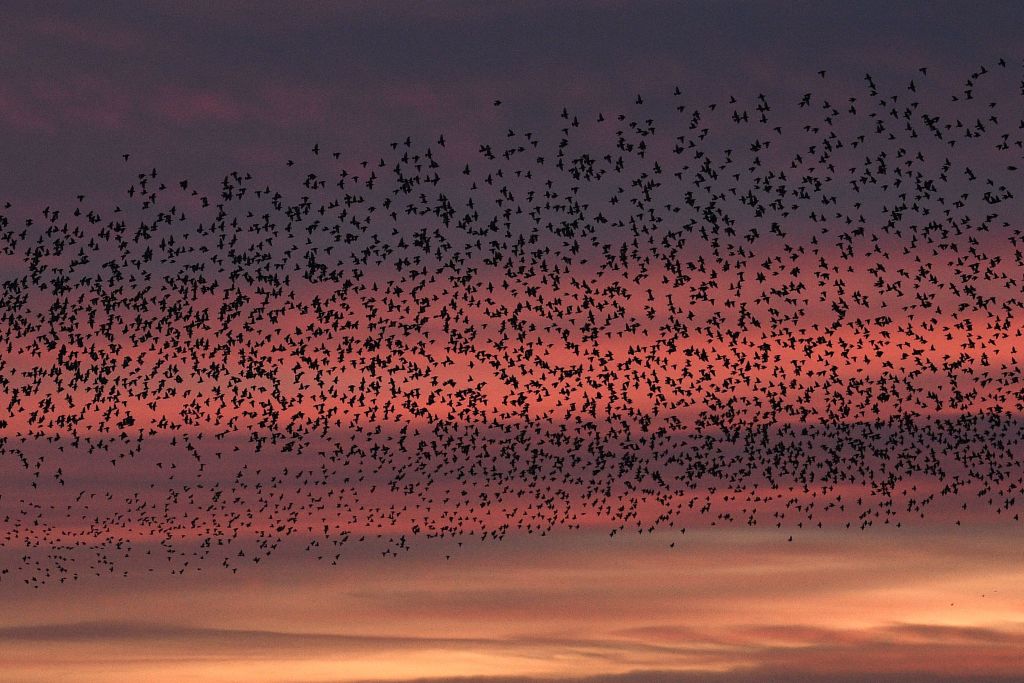A 'mysterious illness' is plaguing birds and baffling scientists across parts of the U.S.


A free daily email with the biggest news stories of the day – and the best features from TheWeek.com
You are now subscribed
Your newsletter sign-up was successful
A "mysterious illness" is plaguing "hundreds" of birds across the southern and midwestern U.S., leaving them with "crusty eyes, swollen faces, and the inability to fly," say The Guardian and HuffPost. Reports of such afflictions began in the spring, and scientists are still unsure as to their cause.
Other potential symptoms include seizures or loss of balance — birds may even "just sit still, often kind of shaking," said Kate Slankard, a biologist of the Kentucky Department of Fish and Wildlife Resources.
In Kentucky, blue jays, common grackles, and European starlings are among the species most affected, while the Wildlife Center in Ohio said on Facebook it had been "admitting songbirds with eye issues." Indiana officials made sure to test afflicted birds for avian influenza and west Nile virus, but both samples came back negative, reports the Guardian. States like Maryland, Virginia, West Virginia, and Washington, D.C. have also reportedly seen cases, writes HuffPost.
The Week
Escape your echo chamber. Get the facts behind the news, plus analysis from multiple perspectives.

Sign up for The Week's Free Newsletters
From our morning news briefing to a weekly Good News Newsletter, get the best of The Week delivered directly to your inbox.
From our morning news briefing to a weekly Good News Newsletter, get the best of The Week delivered directly to your inbox.
The U.S. Geological Survey has recommended people refrain from feeding the avian creatures "until this mortality event has concluded," as birds congregating around feeders and baths can transmit disease to one another, the Guardian writes. The USGS also recommends, for the time being, cleaning feeders and baths with a 10 percent bleach solution, and avoiding the handling of birds.
"This is truly scary," said Jim Monsma of Washington, D.C. wildlife rescue group City Wildlife to DCist last week. "And it's just every day more and more birds."
Read more at The Guardian.
A free daily email with the biggest news stories of the day – and the best features from TheWeek.com
Brigid Kennedy worked at The Week from 2021 to 2023 as a staff writer, junior editor and then story editor, with an interest in U.S. politics, the economy and the music industry.
-
 The Week contest: Lubricant larceny
The Week contest: Lubricant larcenyPuzzles and Quizzes
-
 Can the UK take any more rain?
Can the UK take any more rain?Today’s Big Question An Atlantic jet stream is ‘stuck’ over British skies, leading to ‘biblical’ downpours and more than 40 consecutive days of rain in some areas
-
 The UK expands its Hong Kong visa scheme
The UK expands its Hong Kong visa schemeThe Explainer Around 26,000 additional arrivals expected in the UK as government widens eligibility in response to crackdown on rights in former colony
-
 Blue Origin launches Mars probes in NASA debut
Blue Origin launches Mars probes in NASA debutSpeed Read The New Glenn rocket is carrying small twin spacecraft toward Mars as part of NASA’s Escapade mission
-
 Dinosaurs were thriving before asteroid, study finds
Dinosaurs were thriving before asteroid, study findsSpeed Read The dinosaurs would not have gone extinct if not for the asteroid
-
 SpaceX breaks Starship losing streak in 10th test
SpaceX breaks Starship losing streak in 10th testspeed read The Starship rocket's test flight was largely successful, deploying eight dummy satellites during its hour in space
-
 Rabbits with 'horns' sighted across Colorado
Rabbits with 'horns' sighted across Coloradospeed read These creatures are infected with the 'mostly harmless' Shope papilloma virus
-
 Lithium shows promise in Alzheimer's study
Lithium shows promise in Alzheimer's studySpeed Read Potential new treatments could use small amounts of the common metal
-
 Scientists discover cause of massive sea star die-off
Scientists discover cause of massive sea star die-offSpeed Read A bacteria related to cholera has been found responsible for the deaths of more than 5 billion sea stars
-
 'Thriving' ecosystem found 30,000 feet undersea
'Thriving' ecosystem found 30,000 feet underseaSpeed Read Researchers discovered communities of creatures living in frigid, pitch-black waters under high pressure
-
 New York plans first nuclear plant in 36 years
New York plans first nuclear plant in 36 yearsSpeed Read The plant, to be constructed somewhere in upstate New York, will produce enough energy to power a million homes
